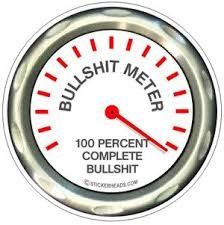In fact Blacks are racist against other blacks. Light skin Blacks are considered uppity to the dark Blacks. You haven't been around many blacks have you bent.
Where do you get this bullschitt? You don't think there are "Whites" out there who judge other "Whites" based on their skin color, beliefs, origin? I've been around plenty of non whites, played ball with many, and never got a sense of superiority over others.... Maybe I was in the wrong hood, homie...
Where did you go to school? You don't have a clue what you're talking about. Do I have to Google it for you to believe that?
I googled "are blacks racist against other blacks" Read it and learn something today bent,
Black-on-Black Racism: The Hazards of Implicit Bias



Black-on-Black Racism: The Hazards of Implicit Biase
In his year-end press conference, President Obama was asked about the state of black America. He responded by saying blacks are “better off than they were,” but juxtaposed that with the lingering issues evinced in the recent tragic police encounters with unarmed black men. Interestingly, he took particular care in calling out the “hidden biases that we all carry around,” a sentiment he echoed in another recent interview.
My own hidden biases punched me in the gut last week, as I stared in disbelief at a test result on my computer screen. Before I started the racial-bias assessment, a disclaimer explicitly warned me that those who are not prepared to receive uncomfortable news should not proceed. I was too intrigued to turn back, but it turns out I was unprepared for the outcome.
--------------------------------------------------------------------------------
Related Story
Hidden Racial Anxiety in an Age of Waning Racism
--------------------------------------------------------------------------------
According to the Implicit Association Test, I have a "strong automatic preference for European Americans compared to African Americans." That's a sterile way of saying that I'm biased against black people. For most people, such a designation would probably be unsettling. After all, the United States is a nation that ostensibly aspires not to judge others "by the color of their skin, but by the content of their character." But for me, it caused a mini-existential crisis.
Why? Because I'm black.
Article Continues After Advertisement
As I read the results, I thought about what it means to be black and biased against other black people. Does it mean harboring a subconscious contempt for my race? Or considering myself to be part of the blessed segment of an otherwise unfortunate lot? Is it even possible for a black person to be racist against black people? In a moment of self-dramatization, I felt as if Kanye had just announced on national television that I didn’t care about black people.
Then, the tropes saturated my thoughts. I wondered if my bias was the undergirding of the sort of intra-race prejudice colloquially expressed in phrases like “Uncle Tom,” “crab in a barrel,” and “acting white.” Since my results were the same as the 88 percent of white Americans who show a bias in favor of white people, it seems to me that this demonstrated “strong preference” is the very definition of acting white—a well-worn pejorative that pained me as an awkward adolescent and suddenly felt fresh again.
The Project Implicit test has been around for a few years, but a recent Mother Jones article titled, “The Science of Why Cops Shoot Young Black Men” gave it wider currency and helped explain the role of implicit bias in the recent events in Ferguson, Cleveland, and Staten Island, where the aggressive policing of black people turned deadly. The IAT measures the ability to quickly and correctly sort selected words as positive and negative and to distinguish faces as belonging to a white or black person. Through a series of paired word and face sequences, the test detects in milliseconds the time it takes the respondent to associate black faces with positive and negative words relative to the time it takes to match white faces. When a respondent pairs black faces and negative words more quickly than other pairings, it reveals implicit bias.
As difficult as it was to learn about my black-on-black bias, such results are fairly common. This is sadly comforting. The data reveal that black respondents’ implicit biases are split just about evenly between pro-white and pro-black. Other research has also shown that black participants tend to have a strong pro-black explicit bias. A conflict emerges: When blacks are asked about their predilections, they express a solid preference for their group over whites, but, in general, performance on the IAT suggests they subconsciously hold a slight preference for whites over blacks.
Article Continues After Advertisement
This dynamic is obviously a direct result of racism. Too often, racism is seen as a social phenomenon that happens to black people. But it happens through black people as well. That is, the negative associations thrust upon black people and black culture can color how we black people view each other. Blacks and whites receive the same narratives and images that perpetuate stereotypes of black criminality and flippancy while synonymizing white culture with American values. It is to be expected that there will be an observable impact on black intragroup perceptions.
The construct of racism is efficiently designed to politically and socially subjugate a segment of the population. For the oppressed, a natural response is to advocate for conformity with the dominant culture as an appeal for equal treatment. If black people were only more respectable, one line of argument runs, they would be less subject to the ills of racism.
















 [/URL][/img]
[/URL][/img] Previous Topic
Previous Topic Index
Index

